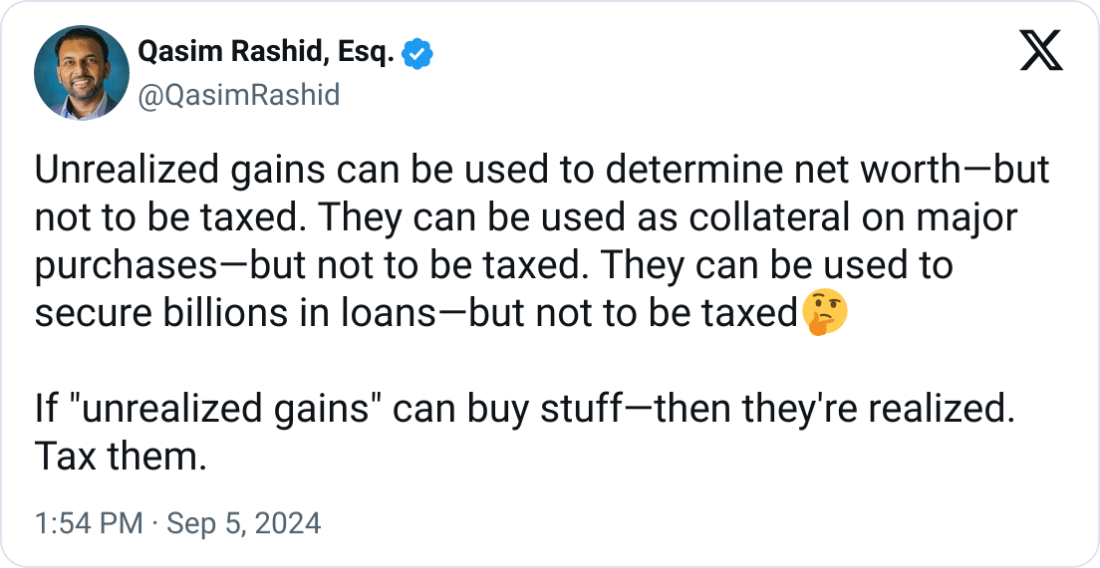this post was submitted on 19 Sep 2024
1598 points (96.8% liked)
Microblog Memes
5903 readers
4831 users here now
A place to share screenshots of Microblog posts, whether from Mastodon, tumblr, ~~Twitter~~ X, KBin, Threads or elsewhere.
Created as an evolution of White People Twitter and other tweet-capture subreddits.
Rules:
- Please put at least one word relevant to the post in the post title.
- Be nice.
- No advertising, brand promotion or guerilla marketing.
- Posters are encouraged to link to the toot or tweet etc in the description of posts.
Related communities:
founded 1 year ago
MODERATORS
you are viewing a single comment's thread
view the rest of the comments
view the rest of the comments

Relevant case law: "While it is true that economic gain is not always taxable as income, it is settled that the realization of gain need not be in cash derived from the sale of an asset" https://supreme.justia.com/cases/federal/us/309/461/
It is in fact true, and clearly then doesn't mean that at all. We can and do control what constitutes a realization event, and borrowing is a pretty sensible candidate. I don't know why you're losing you mind over this fairly prosaic idea.
You left out some pretty important context in that quote to make it seem like it's saying that realization is arbitrarily decided. In truth, all this is saying is that realization is not confined to reception of cash itself:
As it says at the end there, the ways to realize gain all necessarily entail "profit". A loan is not profit, nor is an already-owned asset transform into profit when used as collateral.
The above could absolutely not be used to support your argument, nor refute mine--not when you read it honestly and in context.
The capital gain is the profit, the collateralized lending is the transaction completed to realize that profit. It's a logical extension of accepted understandings of those terms and easy to imagine coherent legislation to implement.
You don't like the idea, that's fine. But it's simply not true to claim that it doesn't make sense and you haven't been able to articulate any inconsistency. Just saying "nuh uh that's not profit" is pointless. We all know it doesn't constitute realized gain in the existing system of laws, but OP and others are suggesting it would a be a sensible way to tax the extraordinary benefits that the ultra-wealthy take from their appreciated assets. It's been explained to you politely and with sources, if you have nothing more serious to add to the conversation I'm done giving you the benefit of the doubt.